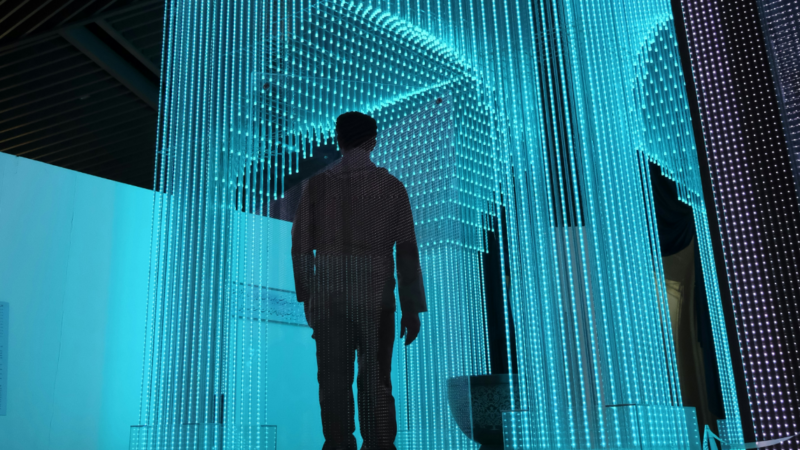Making sense of our connected world

Some impressions from the 2013 Early Stage Researchers Colloquium
Nihil sub sole novum?
Is there nothing new under the sun, has everything been thought through and been said? Well, John Perry Barlows’s 1966 Declaration of the Independence of Cyberspace contributed to the general idea of the Internet being a new space where concepts of property, identity and territoriality would not apply. However, soon it dawned upon the ‘netizens’ and others that code itself is a regulator (“code is law”) that is to be regulated. Thus, the modes of governance of the Internet, its political dimension and infrastructure implications are still questions vividly debated – as it happened at the 2013 Early Stage Researchers Colloquium.
Governance of and by gourmets – what the Internet can learn from wine governance
At the beginning, Jeanette Hofmann and Wolfgang Schulz demonstrated how cultural influences are able to change the mode of self-regulation and in which way they exercise influence on the criteria of quality. They illustrated their reasoning by using a case study in the field of viniculture. In former times, wine had been deeply rooted in catholic liturgy, thus it was part of daily life. It had even been drunken for breakfast as a «drink of moderation». In 1907, this specific, peculiar role of wine led to the French Wine-Grower’s Revolt. At that time, overproduction and grape vine diseases had started the crisis and southern France was forced to organize itself due to the pressure of these events. As a result, a new law against adulterated wines could be achieved, flooding the market with new competition rules and conditions. However, in the U.S. wine had been considered to be an «intoxicating liquor». The alcohol prohibition had ensured that there was no chance to develop a growing of high-quality wines, at least at that time. The concept of self-regulation by the private Association of German Quality and Prädikat Wine Estates (VDP) on the one hand and the official inspections of wine quality on the other hand are good examples for quality assurance in Germany. In this co-regulation procedure, you could identify models of self-regulation and the approach of multi-stakeholder-arrangements. The benefits and downsides were obvious: Expertise could be contributed expediently; however, most agents are simply not interested in a holistic approach but feel obliged to their specific area of interest. Consequences could be risks of market foreclosure through participation of potentially biased persons and innovation backlog. The speakers concluded by stating that the concept of cultural embedding is essential for a proper understanding of Internet governance. In fact, the Internet was not just a new «unique thing». That is why old knowledge, of viniculture in this case, could still be made fruitful for Internet research.
Chilling Effects in a Chilly Climate
In the first session, Judith Townend, Stephan Dreyer and Julian Staben discussed which influence law has on online behaviour. Townend illustrated how the British law against defamation and libel and its soakage system had a negative, self-restricting effect on journalists’ conduct of publishing. For showing this mechanism she used statistic analysis and surveys. Dreyer addressed the control theory to examine such „chilling effects“ with analytic categories. It was plausibly shown that these effects could also come from private actors, codes and algorithms. All in all, the session revealed that it is necessary to find a way to somehow deal with the growing importance of deterrent effects, even in a context of constantly changing law.
- Judith Townend – PP: Digital journalism in a chilly climate? A view from England & Wales
- Stephan Dreyer – Prezi: Chilling con carne – Systematization of chilling effects from the perspective of control theory
Does the Internet have what it takes to be political?
The topic oft he second session was how forms of online activism can be reflected in a new way from a social-scientific, media-scientific and philosophical perspective? Theresa Züger moderated the discussion which was led by speakers from Israel, Italy and France.
Nir Yamin addressed Olson’s (1965) Theory of Collective Political Action in order to defend actions such as the signing of online petitions. These actions are partly pejoratively named as „slacktivism“ (portmanteau of the words ‘slacker’ and ‘activism’) due to the low threshold of participation. According to Yamin, „slacktivism“ can help to reduce the obstacles of political protest since expenses and asymmetries of information among the participants can be relieved.
Carlo Milani and Vivien Garcia, inspired by Wittgenstein’s term of „family resemblance“, spotlighted the linguistic phenomenon that various forms of online activism use symbolic terms such as „freedom“. Therefore, a careful observation of all aspects, not only semantic differences was necessary.
Moritz Queisner paid attention to the place of political action that was traditionally connected to physical and locally visible actions. In taking an indirect route through the 90s when cyberspace had been understood as „non-space“, Queisner declared the „rebirth of space“ in explicating all the new possibilities around geolocation, tracking and Geo Data.
- Moritz Queisner – PP: The Arena of Protest and the Rebirth of Place
(Net) to be or not to be?
In the session about Internet infrastructure, with Uta Meier-Hahn it became clear: The research is still in its infancy. Moran Yemini enriched the „under-theorized“ debate on net neutrality with ideas from Political Theory. The correct approach would ensure a common understanding of norms and values that apply for information and communication systems. The freedom of speech, for instance, embodies a social value regardless of whether all citizens would ever author internet-based innovation. Nonetheless, economic argumentation around innovation characterised the debate on net neutrality for then. Robert Yanguas argued about the hidden danger for operators in open WLAN if third parties cause damages.
Exemplarily, the jurist recognised problem-solving approaches in technological regulation and coding as „out of the box“ as well as transparent terms and conditions for providers.
Ben Wagner gave a lecture on exact this trend of technological regulation, showing that the Internet is significantly defined by codes in private IT-products, algorithms and technical standards. Furthermore, regulators are gaining influence. In his presentation, Wagner sensitised the audience for the topics of deficient transparency and democratic control in the field of technical regulation.
The Early Stage Researchers Colloquium 2013 demonstrated: The Internet did revolutionise the world, but it has grown in an evolutionary way. Governance realities are older than their concepts; old patterns of conflicts have been remained and need to be discussed and solved further on. In the end, the Internet is „just the same, but completly different“.
This post is part of a weekly series of articles by doctoral canditates of the Alexander von Humboldt Institute for Internet and Society. It does not necessarily represent the view of the Institute itself. For more information about the topics of these articles and asssociated research projects, please contact presse@hiig.de.
This post represents the view of the author and does not necessarily represent the view of the institute itself. For more information about the topics of these articles and associated research projects, please contact info@hiig.de.

You will receive our latest blog articles once a month in a newsletter.
Research issues in focus
AI at the microphone: The voice of the future?
From synthesising voices and generating entire episodes, AI is transforming digital audio. Explore the opportunities and challenges of AI at the microphone.
Do Community Notes have a party preference?
This article explores whether Community Notes effectively combat disinformation or mirror political biases, analysing distribution and rating patterns.
How People Analytics can affect the perception of fairness in the workplace
People Analytics in the workplace can improve decisions but may also heighten feelings of unfairness, impacting employee trust and workplace relationships.




